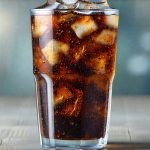It’s a remarkably common experience: you savor a refreshing cold drink – perhaps iced tea on a hot day, a chilled glass of water, or even a frosty soda – and almost immediately feel the urge to urinate. This isn’t typically cause for alarm, but it is intriguing. Why does this happen? Most people recognize the sensation, yet rarely understand the physiological mechanisms at play. The feeling is so prevalent that it’s often dismissed as just one of those little quirks of being human, but there’s a surprisingly logical explanation rooted in how our bodies regulate fluids and respond to temperature changes. This article will delve into the science behind this phenomenon, exploring the intricate processes that lead to increased urination after consuming cold beverages, and differentiating between normal physiological responses and situations where further investigation might be warranted.
The sensation isn’t necessarily about the drink itself, but rather how your body reacts to it. Our kidneys are constantly working to maintain fluid balance – filtering blood and eliminating waste products as urine. This process is influenced by a multitude of factors, including hormones, hydration levels, and even temperature. Cold drinks trigger a cascade of events that momentarily disrupt this delicate equilibrium, leading to an increase in urine production. Understanding these mechanisms will not only demystify the experience but also provide insight into the remarkable adaptability of the human body. It’s important to remember that this is generally a normal physiological response, and most individuals don’t need to worry about it unless accompanied by other concerning symptoms.
The Diuretic Effect & Cold Temperatures
The feeling of needing to urinate after a cold drink isn’t simply psychological; there’s a genuine diuretic effect at play. A diuretic substance causes the kidneys to excrete more water and electrolytes, leading to increased urine production. While caffeine and alcohol are well-known diuretics, cold temperatures can also induce a similar response, although less powerfully. This is largely due to how our bodies prioritize maintaining core temperature. When you consume something very cold, your body needs to expend energy to warm it up – and itself in the process.
This warming process involves several mechanisms. Blood vessels near the stomach constrict to reduce heat loss from the core, while others may dilate peripherally to dissipate excess heat. Simultaneously, there’s an increase in blood flow to the kidneys as part of this thermoregulatory response. This increased blood flow causes the kidneys to filter more fluid, resulting in more urine production. It’s not the cold drink itself directly causing diuresis, but rather the body’s reaction to it and the associated changes in blood flow and hormonal balance.
The effect is also influenced by individual factors like hydration status. If you are already well-hydrated, the diuretic impact might be less noticeable. Conversely, if you’re slightly dehydrated, the increase in urination may feel more pronounced. Furthermore, the speed at which you consume a cold drink can play a role – gulping down a large quantity rapidly will likely trigger a stronger response than sipping it slowly. Think of it like a sudden thermal shock to your system; the quicker and greater the change, the more dramatic the physiological reaction.
Cold-Induced Diuresis & Hormonal Shifts
The hormonal shifts that occur in response to cold temperatures play a crucial role in this phenomenon. Specifically, antidiuretic hormone (ADH), also known as vasopressin, is significantly affected. ADH normally helps regulate water reabsorption in the kidneys, preventing excessive urine production. When you’re cold or consume something very cold, your body temporarily suppresses ADH release.
This suppression leads to less water being reabsorbed by the kidneys, resulting in more fluid being excreted as urine. It’s a complex feedback loop designed to maintain homeostasis. The body prioritizes temperature regulation and fluid balance simultaneously, but the temporary reduction of ADH is a key component of cold-induced diuresis. This isn’t necessarily detrimental; it’s part of how our bodies adapt and respond to environmental changes.
The release of atrial natriuretic peptide (ANP) may also be involved. ANP is released by the heart in response to increased blood volume, promoting sodium and water excretion by the kidneys – effectively increasing urine production. While not directly caused by cold drinks themselves, the increase in blood flow to the kidneys triggered by temperature regulation can stimulate ANP release, contributing further to the diuretic effect. Understanding these hormonal interactions provides a more complete picture of why we experience increased urination after consuming cold beverages.
The Role of Osmolality and Renal Blood Flow
Osmolality, which refers to the concentration of solutes in bodily fluids, is tightly regulated by the kidneys. When you drink something cold, it can temporarily alter renal blood flow – the rate at which blood passes through the kidneys. This alteration impacts how efficiently the kidneys can concentrate urine. Increased renal blood flow generally leads to more dilute urine (meaning lower osmolality) and a higher volume of urine production.
This effect is amplified by the fact that cold temperatures themselves can affect kidney function. The kidneys are sensitive organs, and changes in temperature can influence their ability to effectively reabsorb water. This means even if you’re adequately hydrated, a cold drink can overwhelm the kidneys’ capacity to conserve fluid, leading to increased urination. It is also important to note that the type of liquid consumed plays a role; sugary drinks can further exacerbate this effect due to osmotic pressure and their impact on kidney function.
Furthermore, the body’s response to temperature changes isn’t static. Repeated exposure to cold stimuli can lead to some degree of adaptation – meaning individuals who regularly consume cold beverages might experience a diminished diuretic effect over time. This is because the body becomes more efficient at regulating its internal environment in response to consistent thermal challenges.
Differentiating Normal Response from Concerning Symptoms
While increased urination after a cold drink is usually harmless, it’s important to be able to differentiate between a normal physiological response and potential underlying medical issues. If you experience any of the following symptoms in addition to frequent urination, it’s advisable to consult a healthcare professional:
- Burning sensation during urination
- Blood in urine
- Fever or chills
- Back pain or flank pain
- Excessive thirst
- Unexplained weight loss
- Difficulty urinating or weak stream.
These symptoms could indicate conditions such as urinary tract infection (UTI), kidney problems, diabetes insipidus, or other medical concerns that require diagnosis and treatment. Don’t self-diagnose; seek professional medical advice. It’s also important to note that individuals with pre-existing kidney conditions or diabetes may be more susceptible to the diuretic effects of cold drinks and should monitor their fluid intake accordingly.
Ultimately, understanding the science behind this common experience can provide peace of mind. The need to urinate after a cold drink is typically a normal physiological response driven by the body’s remarkable ability to maintain homeostasis in the face of temperature changes and altered blood flow dynamics. It’s a testament to the intricate interplay between our nervous system, hormonal regulation, and renal function.





















